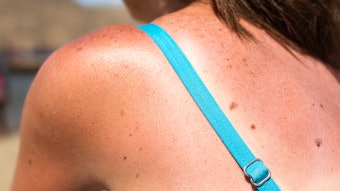
Skin care is a top concern of the spa profession, and it is the job of spa professionals to drive home the importance of using sunscreen every day. Share this information with your clients as support for your advice to apply sunscreen daily.
A recent study in the Archives of Dermatology points to the rising incidence of nonmelanoma skin cancers. The study, "Incidence Estimate of Non-melanoma Skin Cancer in the United States, 2006," Archives of Dermatology 146(3) 283–287 (2010) published in the current issue of Archives of Dermatology, confirms for the first time that there is an epidemic of nonmelanoma skin cancer in the United States.
The study examined the number of skin cancers in the Medicare population between 1992 and 2006 and concluded that, due to a dramatic increase in the total number of procedures to treat skin cancers during these years, skin cancer has reached an epidemic level in the United States. To address this epidemic, the study's authors urge continued education, prevention and research.
"We know that consumers are falling short of adequately protecting themselves because they aren't applying the dermatologist-recommended one ounce of sunscreen that is needed to cover the entire body," said Darrell S. Rigel, MD, clinical professor of dermatology at New York University Medical Center and skin care company Neutrogena consultant. "Under-application of sunscreen can translate to having significantly less sun protection than the SPF value on the label," he added. According to Rigel, the newly published research underscores the critical importance of effective protection.
In 2009, Neutrogena conducted a survey of Americans' sun protection habits and learned that although 80% of adults surveyed indicated they recognized sun exposure could be deadly, the majority of Americans are not wearing sunscreen. The survey also revealed that most adults (70%) report getting sunburned at least once per year. These Neutrogena survey findings echo the recommendation of the study's authors who stress continued education as a measure to control the epidemic of skin cancer.










